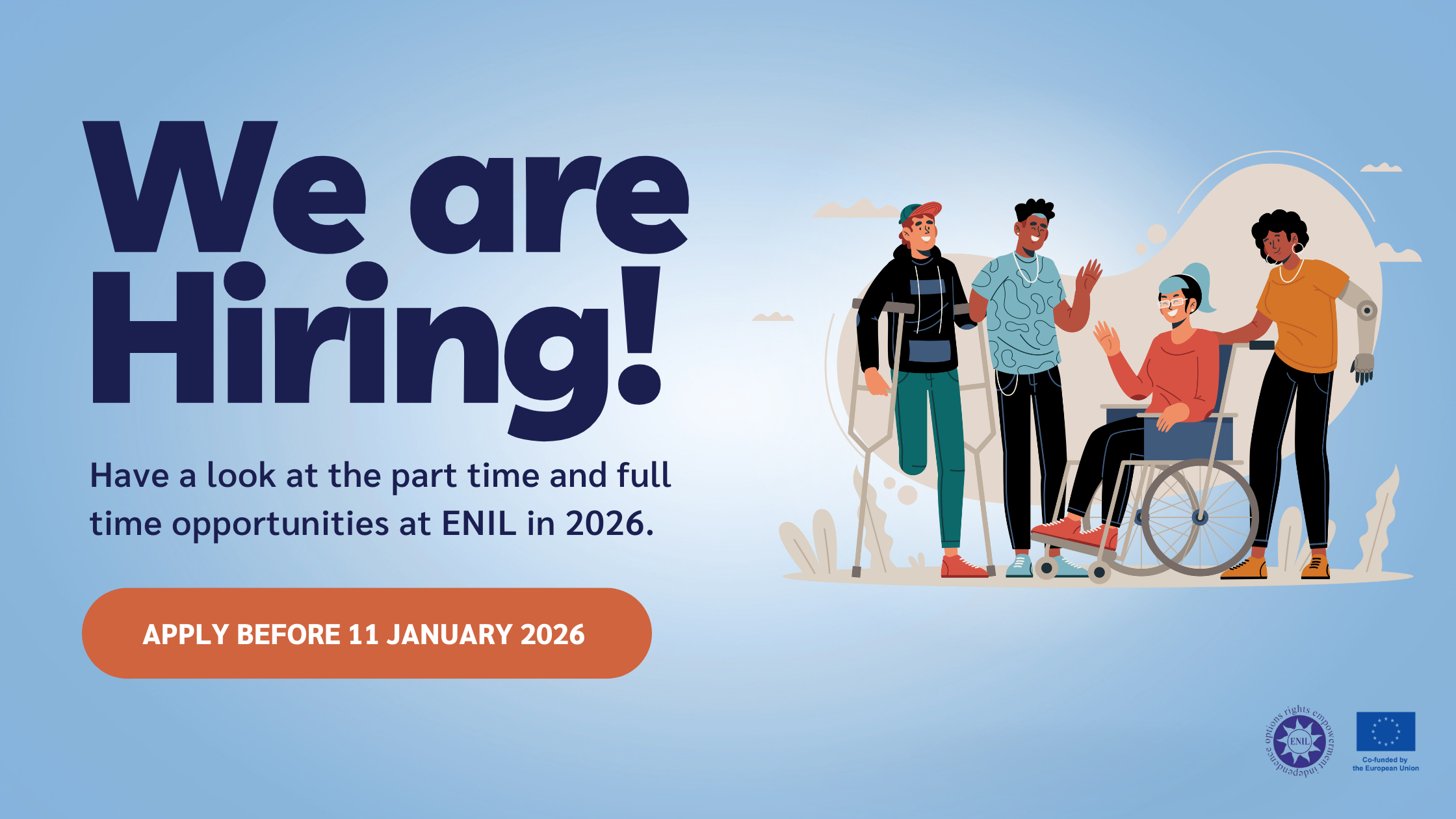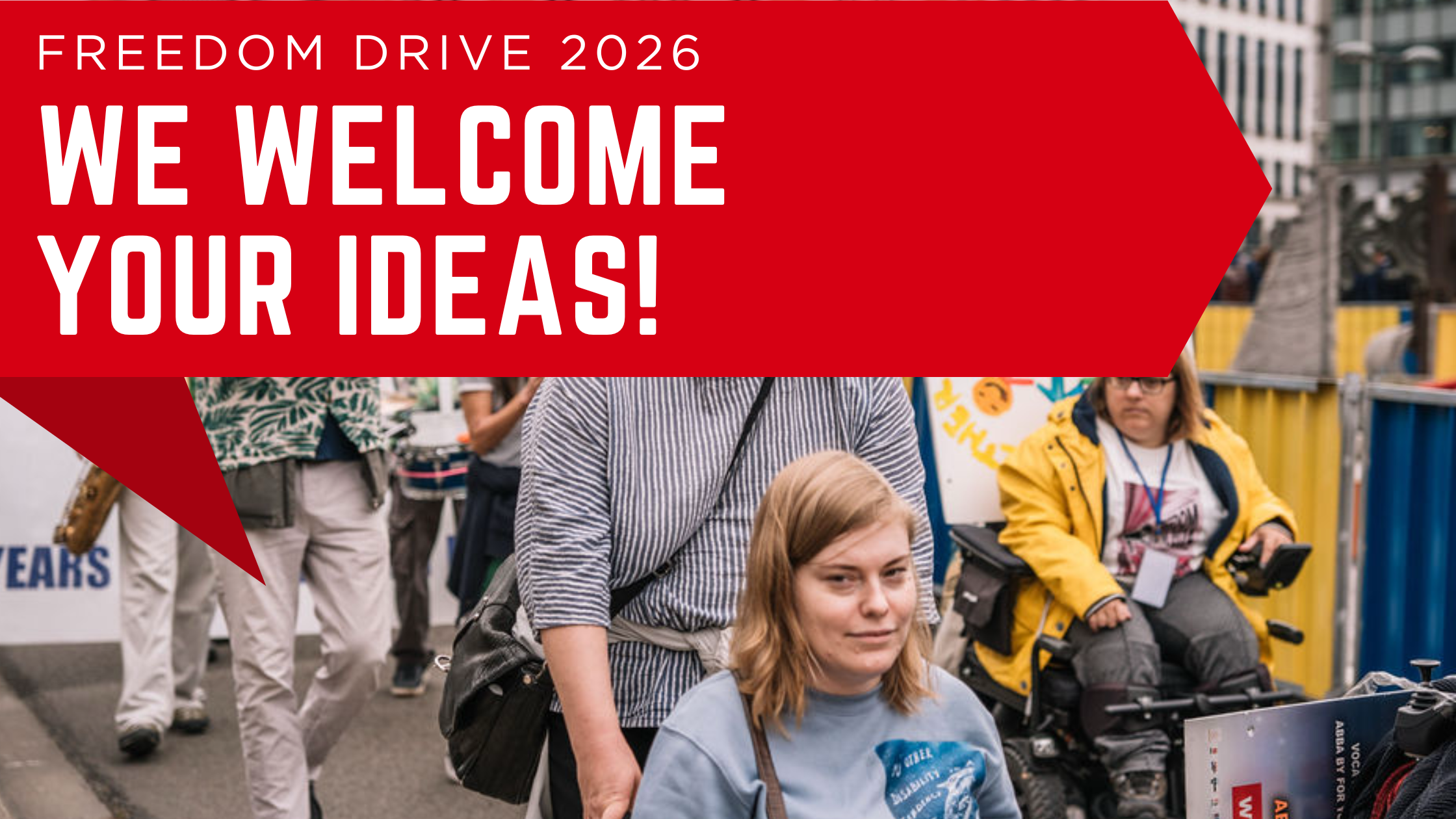[Korea-EU Joint Statement]Living in the community is the basic human right of EVERY disabled person
-NO institution can guarantee it
“States parties should recognize that living independently and being included in the community refers to life settings outside residential institutions of all kinds, in accordance with article 19 of the Convention. Regardless of size, purpose or characteristics, or the duration of any placement or detention, an institution can never be regarded as compliant with the Convention (UN Committee on the Rights of Persons with Disabilities, 2022, ‘Guidelines on deinstitutionalisation, including in emergencies’)”
The Korean and European disability communities are gravely concerned by the recent claims in Korea that institutions for disabled people in Europe are in line with the UN Convention on the Rights of Persons with Disabilities (UN CRPD) and should be considered as models of good practice. We strongly condemn the protectionist view that institutions are necessary for the well-being of persons with disabilities. Institutionalisation is an unjustifiable human rights violation. There is no doubt.
Those who are against deinstitutionalisation argue that institutions should be a “housing option” for disabled people. However, this argument is based on a discriminatory view of people with disabilities as not being able to live independently and needing protection from the rest of society, which contradicts the core principles of the UN CRPD; respect for the inherent integrity of persons with disabilities and the right to live in the community, with choices equal to others and control over their own lives.
The UN CRPD General Comment No. 5 (2017) states that “Both independent living and being included in the community refer to life settings outside residential institutions of all kinds (para. 16.(c))”. The Guidelines on deinstitutionalisation, including in Emergencies (“Guidelines”), issued by the UN CRPD Committee in September 2022, are even more explicit: “Institutionalization must never be considered a form of protection of persons with disabilities, or a ‘choice’(para. 8)”, “States parties should refrain from suggesting that persons with disabilities ‘choose’ to live in institutions(…) to justify the maintenance of institutions(para. 29)”; and “Children and adolescents with disabilities cannot ‘choose’ to live in an institution(para. 49)”. It unequivocally dismisses the idea that institutions can be a housing option for persons with disabilities.
Opponents of deinstitutionalisation also claim that ‘institutions are safer for persons with disabilities requiring higher medical support’. However, looking into the current state of institutions, this is far from reality.
In South Korea, 55% of the 1,059 disabled people who died in residential institutions over the past five years (2018-2021) were under the age of 49, and 94.1% of the deaths were due to illness.
A survivor of institutionalisation in South Korea also testified that;
“In winter, we were so cold because there was no heating and not many blankets, so we had to keep moving around to warm ourselves. We all got frostbite, and one of my colleagues had to have her foot cut off because she didn’t get any medical treatment. The staff dropped me in the bathroom and I hurt my back badly – I couldn’t even move my toes, as it hurt so much. All I could do was just lying down and crying.
There was a nurse in that institution, but she didn’t bring me to the hospital. They just gave me pills. Some people, including politicians, keep saying, ‘people with severe disabilities will be in danger if they go out of institutions.’ How can you say it’s safer just because nurses are in the institution when they can’t even guarantee basic safety and health? (Sangji Cho, Institutionalisation survivor).”
This testimony shows that institutions hardly provide intensive medical care; rather, they control people with medication. According to a 2018 survey by the National Human Rights Commission of South Korea, 15.3% of residents reported that they were not seen by a doctor when they fell ill, and 61.9% reported taking medication every day. However, 21.4% took it without knowing what the medications were for and 34.5% of them were unaware of the side effects.
No matter how ‘advanced’ institutions are, the confinement of people with disabilities in spaces that do not respect their autonomy and control, just because they are disabled, and in ‘programmes’ that are set by others, is nothing but detention on the grounds of impairment and a serious human rights violation. This is not just a claim by disability rights organisations, but an international agreement. The UN CRPD guarantees everyone the right to decide “where, with whom and how” they live, and to fully participate in society. The Guidelines on deinstitutionalisation emphasise that “the absence, reform or removal of one or more institutional elements cannot be used to characterize a setting as community-based (para. 16).” They also state that institutionalisation “constitutes detention and deprivation of liberty based on impairment, contrary to article 14 (para. 6).”
‘Advancing institutions to respect the control power of persons with disabilities’, one of the intentions of the recent conference in South Korea, is just a rhetoric of the powers that be to maintain the institutional structure. To genuinely and fully ensure the autonomy and control of disabled people, resources should be allocated to creating services in the community, not ‘advancing’ institutions. The Guidelines state, “Investments in institutions, including renovation, should be prohibited. Investments should be directed towards the immediate release of residents and the provision of all necessary and appropriate support for living independently (para. 29).”
The same can be said for institutions in Austria, which were recently cited in Korea as examples of institutions in line with the UN CRPD. No matter how many staff there are, how ‘advanced’ and comfortable the buildings are, it is clear that persons living in these institutions have little contact with the outside and are isolated from general society. They also fail to receive individualised support, such as personal assistance; therefore, institutions can never be considered independent living.
In many cases, people living in institutions in Austria cannot choose whom to live with and this hinders their sexual and reproductive rights. In a letter to the CRPD Committee in 2018, the Austrian Ombudsman Board said that “Although modern pedagogics for persons with disabilities are strongly orientated towards self-determination, empowerment and a life according to the normalisation principle, measures that restrict freedom are regularly carried out in residential facilities[institutions] and workshops in Austria”. They pointed out that the autonomy and the right to live in the community of persons with disabilities are being violated in institutions across the country.
The UN CRPD has been ratified by 186 countries across the globe and applies equally regardless of the political or cultural context. Countries must, therefore, refrain from importing bad practices from elsewhere, under the guise of innovation. This is especially true of models coming from Europe, where there is a lot of opposition to closing down institutions for persons with disabilities and other groups, and significant funds are used to open new institutions.
The elimination of disability discrimination and full equality will only come when the global community works together. In this spirit, the Korean and European disability communities will continue to work in close solidarity and cooperation. Institutionalisation is a remnant of a shameful history of excluding people with disabilities from communities, failing to recognise them as owners of their own lives. Together, we say no to a society that refuses to listen to the voices of people with disabilities, and we move towards an equal future.
21 March 2023
——–
CSOs in the Republic of Korea
Korean Disability Forum
Solidarity Against Disability Discrimination
Korea Council of Center for Independent Living
Korean Parents’ Network for People with Disabilities
National Council of Popular School for People with Disability
Korea Solidarity for Human rights of disability people with Brain lesion
Disability and Human Rights in Action(“FootAct”)
Disability Discrimination Act of Solidarity in Korea
National Council of Right-based Public Jobs
National Solidarity for Right to Mobility of Persons with Disabilities
National Deinstitutionalization Coalition
MINBYUN – Lawyers for a Democratic Society Minorities’ Rights Committee
Activists group for Human Rights ‘BARAM’
Korean House for International Solidarity
CSOs in European Union and International Organisations
European Network on Independent Living
Independent Living Austria
Validity Foundation
Disability Rights International
World Independent Living Centre Network (WIN)



